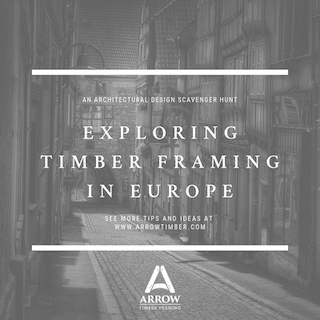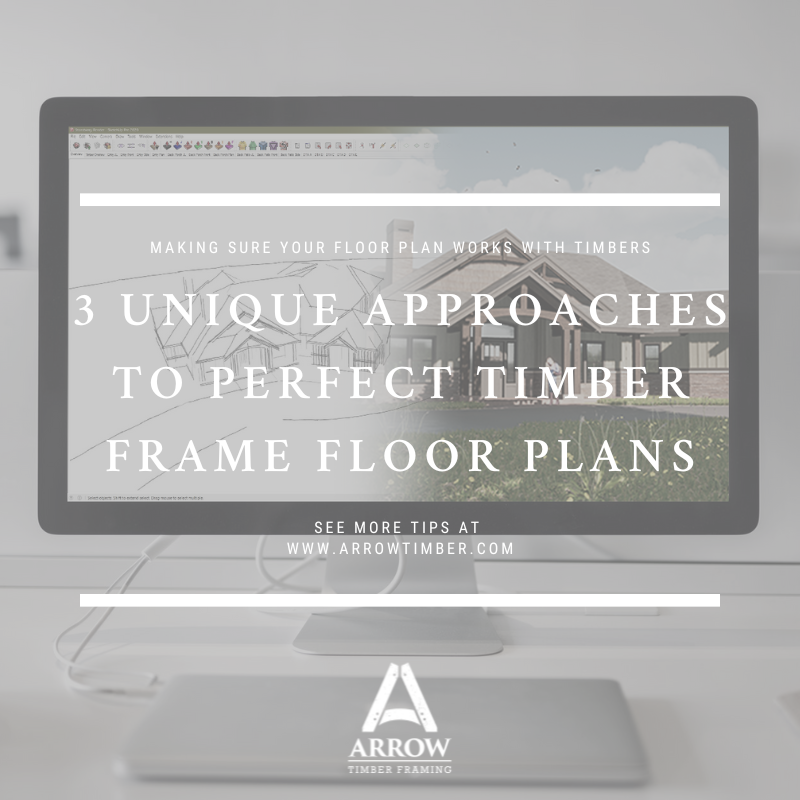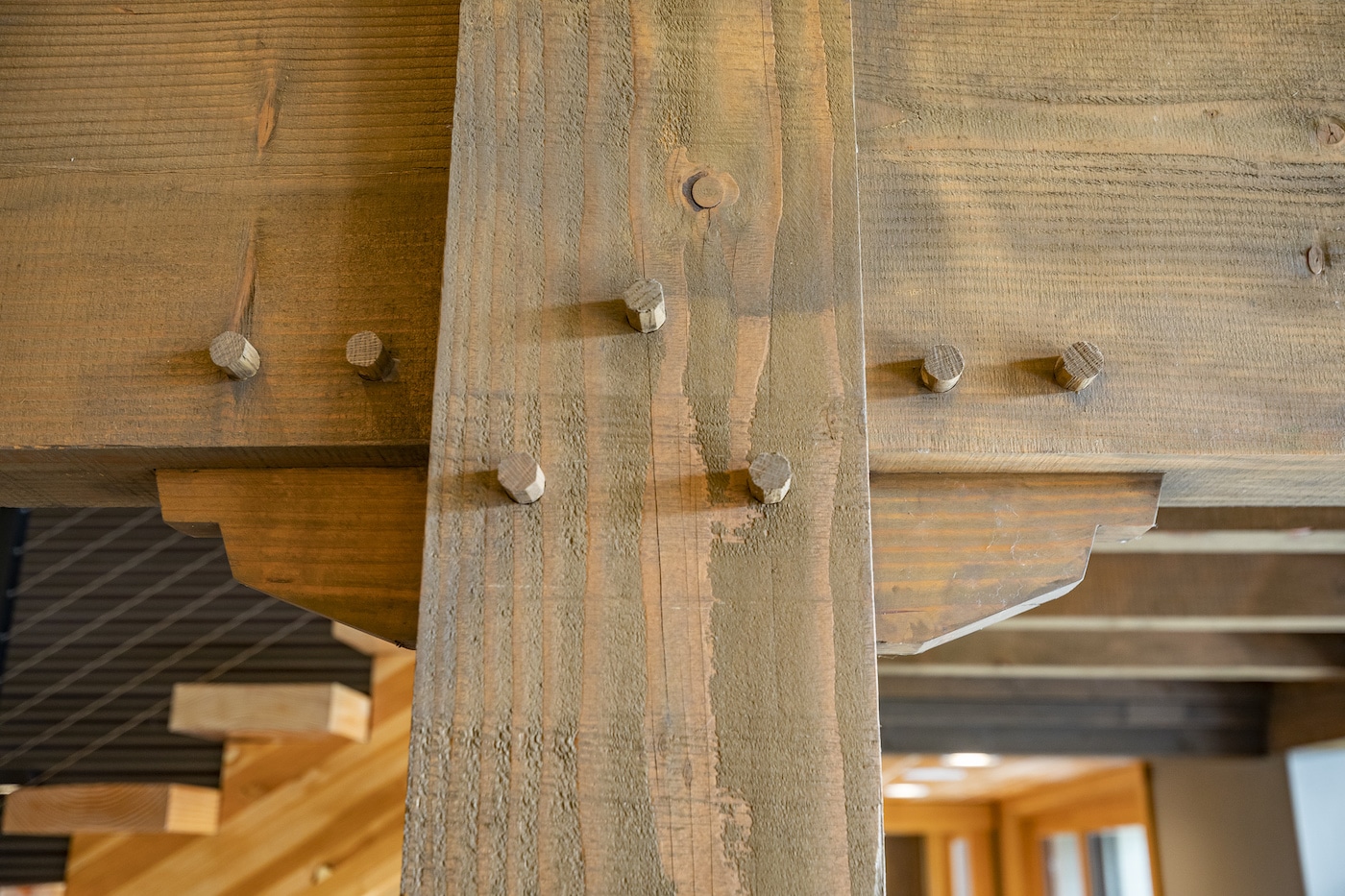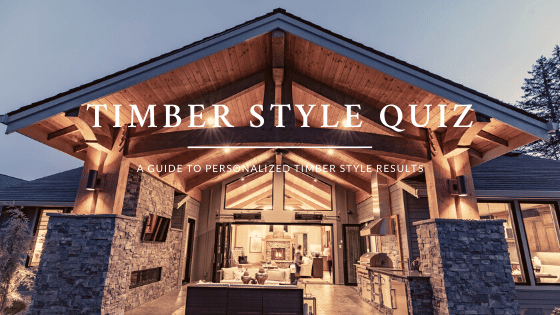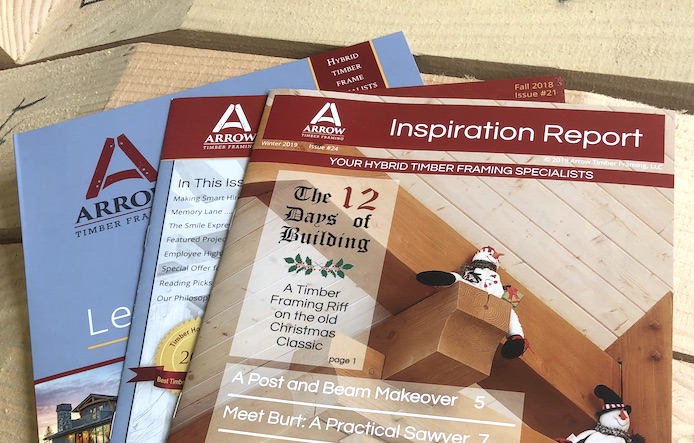So you’ve considered all your options and looked deep within and you are positive – your new home is to be a timber frame home. Firstly, congratulations! But, now what? Where do you begin? At the heart of planning for any home is the floor plan. The way in which you will interact with your home is paramount to your emotional well being and lifestyle you wish to harbor for your residency.
There are loads of resources available online when trying to find floor plans. You can pick from a dozen similar floor plan catalog sites dedicated exclusively to selling plans and prints for a fee. There is of course social media like Pinterest, and Instagram, where you can follow specific firms or persons, work that they share publicly across their channels. You may go straight to the source and track down a local home builder or architect for their work.
There is, of course, the option to grab the nearest pencil and start scratching out your own vision of a floor plan. These days, there are even a few apps for that very purpose.
Everything mentioned so far is great in the early stages of the process. The mind is like a sponge absorbing a myriad of ideas as the stones are turned over. You’ll soon realize that you’re finding more ideas that you dislike than like. At this point, the project scope narrows and it’s time to get serious.
Eventually, you are going to realize that you’ve either discovered your ideal floor plan through your search or have come across a few really good concepts but none are hitting the sweet spot. This leads to a very important topic of discussion. Do you run with the stock plan, modify the best of the stock plans or decide that none are really satisfactory and you want to develop a custom plan.
Let’s break down these options into something tangible.
Stock Plans
At face value, one of the simplest and most accessible options are the stock plans available at any of hundreds of websites and home builders across the web. Though the process of searching can be laborious, there is almost always something out there that will check most of the boxes.
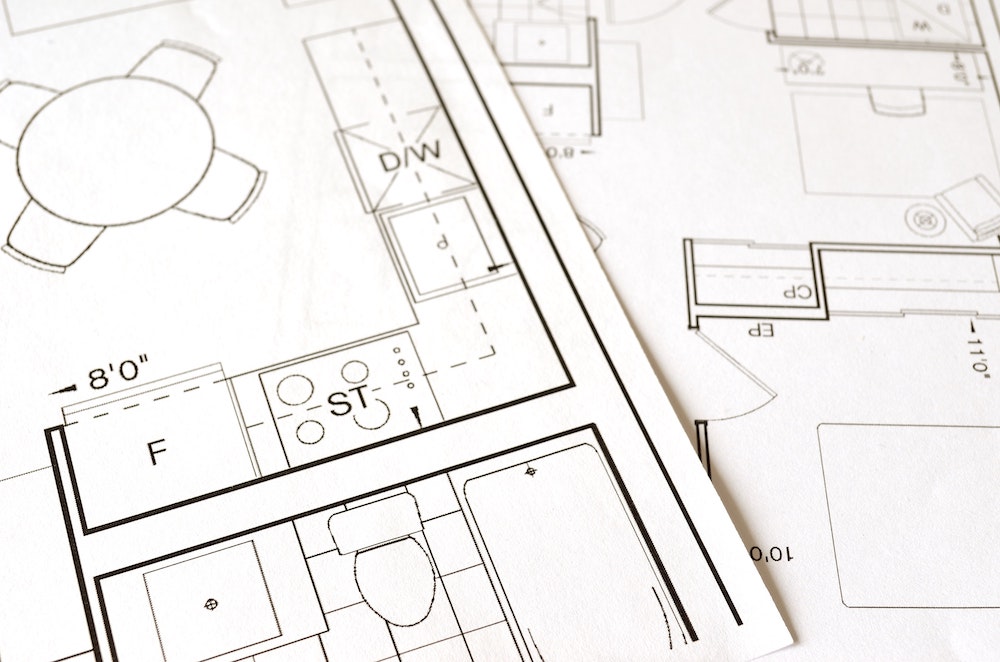
The ready-made nature of stock plans can be alluring. It’s simpler and often quicker to pick from a number of different polished end product configurations that have most likely been built by others. This typically comes with the auxiliary benefit of naturally vetting itself. These plans incorporate many time tested characteristics that designers have found work for a broad range of customers. Furthermore, there is a high chance that the plan you are looking to build has already been built, allaying potential concerns about structural or functional qualities inherent in the design.
The low price of these plans is potentially the most attractive selling point. This is the case because the plans were most likely designed specifically to entice a wide audience. The plan is intended to be sold repeatedly, meaning that some savings are then passed on to customers because the cost is distributed among many “owners” of this set. This may be a non-starter for those with discerning tastes, some won’t have a problem with the idea that their home isn’t entirely unique.
There is one major hindrance that affects the majority of off the shelf plans – codes.
These plans are often designed to a very general structural specification that won’t meet most local building codes. A local engineer or designer will have to be employed to make modifications to make the home compliant with your local building requirements. Beware that this can sometimes change the aesthetics of the design in unintentional and unexpected ways. These services will cost an amount that is dependent on how significantly the plans need to be altered.
Perhaps the biggest potential disadvantage when considering stock plans is the lack of options that incorporate timber elements. There is of course plenty that do, however, the designs may leave a lot to be desired. This isn’t the end of the world. In both scenarios, a competent timber frame company that aligns with your stylistic inclinations will be able to generate a solution. This approach will involve making more decisions, time, and money, but typically still much less than working from scratch.
Pros
-Lowest cost
-Bountiful curated concepts
-Zero lead time
-Usually, time tested
-No stressful decisions
Cons
-Usually compromised room configurations
-Typically won’t satisfy local codes or neighborhood stipulations
-Either unmodifiable or costly to edit
-Almost never consider timber elements
Custom Plans
So, you’ve roamed the web and talked to all the local builders and you still aren’t satisfied with the options that have been set before you. Perhaps you knew right away that your needs were only going to be satisfied if you set the program and made all the decisions from scratch. Well, now we’re looking at the top shelf of the residential planning world – a custom home plan.
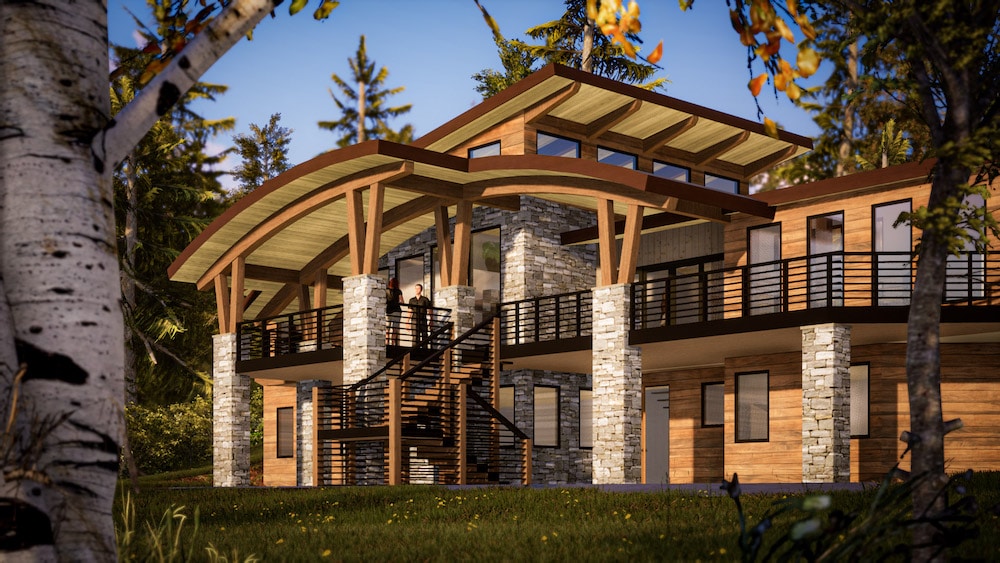
Early in this process, you’ll seek out a design professional that understands what you’re all about. There will likely be multiple interviews where you and a designer will try to communicate your vision into something tangible.
This is often a laborious venture and will require patience to allow the process to yield the best results possible. There will be times during which you will feel overwhelmed and weary of all the decisions. Some will actually enjoy this more, but by and large, it helps to be aware of the gravity of the exercise. The extra effort is worth its weight in gold when considering that you’ll get to appreciate those tailor-made solutions day after day.
This route requires a heftier investment upfront to draft your specific vision.
This will seem intuitive to most people, but there are a few things to consider in the long term. A stock plan will obviously be much cheaper initially, but some design services will likely always need to be contracted unless the codes of your local jurisdiction are extremely lax. When devising a custom plan, these codes are taken into consideration from the very start, as well as any rules or regulations mandated by an HOA.
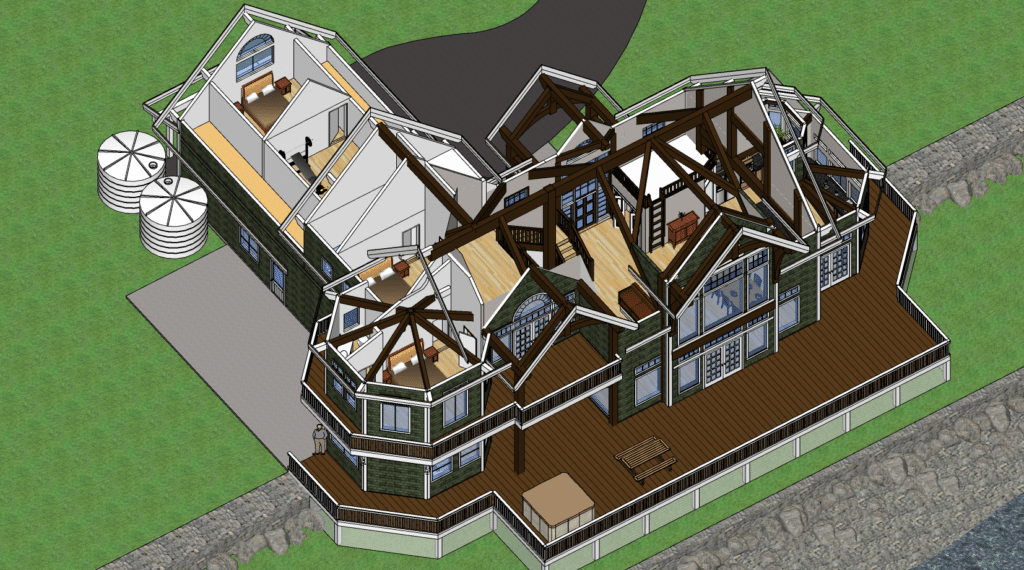
The final consideration to figure for has to do specifically with the timber frame. A custom plan is going to afford the maximum amount of flexibility when considering your timber aesthetic preferences. Some stock plans may allow for more latitude when designing a timber plan than others. Custom plans can incorporate the timbers in a holistic manner, whereas a stock plan may require ad hoc resolutions or limited by key structural areas. Every trick in the book is at your disposal from the beginning when considering the style and frequency that the timbers will be represented in your home.
Pros
-All needs and desires are addressed
-“Out-of-the-box” solutions
-Designed with site and codes in mind
Cons
-Decisions can be overwhelming
-Iterative changes and tweaks take time
-The initial cost is higher
Which is right for you?
Ultimately, you and yours are going to be your own best advocates coming to this conclusion. There are several key considerations that we’ve outlined to make this a less cumbersome decision. Obviously, there are unique circumstances that won’t fall neatly into one of the prescribed categories that may require extra reflection. We encourage you to talk to friends, family, and of course, timber framers like ourselves to see if adequate accommodations can be made for your special case.

The time spent planning, gathering info, and considering these options will help to galvanize your vision for the upcoming steps in the building process.
Regardless of which option you believe will best serve you, the team at Arrow Timber is capable of working with you to produce the beautiful timber home that you’ve always aspired toward. We’ve spent the past decade working with hundreds of clients that have come to us following either of these paths. We understand that everyone has their own preferences and we have become adept over the years to provide a flexible design process that works for you just the same.
Your satisfaction is paramount to us.
It’s what we strive for. Once we’re on your team, we work tirelessly until you are happy with your project. It’s embedded in our DNA and our core values as a company, that we won’t stop until you are happy.
-written by Taylor Meckling
Building Your Single-Story Timber Frame Dream Home
Post & Beam Timbers | Drying, Species & Shrinkage
7 Reasons You Should Build Green
Are Exposed Beams Directly Linked to Stability?
How to Artistically Mix Logs and Timbers
How to Avoid a Structural 98lb Weakling
Insulation Values Myth: The “R” Fairy Tale
Full Timber Frame, Hybrid Timbers or Small Accents?
I Want It Big! The Veach Home Project
A Brief History and Evolution of Timber Framing
Timber Framing a 10K Sq. Ft. House
3 Unique Approaches to Timber Floor Plans
Differences Between Log, Timber, Post & Beam
8 Timber Mantels - Inspiration Is Easier Than You Think!
The Sherertz Family Project with GRO Outdoor Living
Trial by Fire: The Birth of ATF
Tips and Ideas to Make Timber Maintenance Fun
What Type of Beam Finish is Best for You?
Where To Draw the Line For Timber Decor in Your Home
Timber Framing: Why it's a 'Green' Technique
What It's Like Owning a Giant Sawmill
Videos: A Timber Frame Lakehouse
Video: Couple Decides on Timber Framing
Video: When Feng Shui Goes Wrong!
Structural Lessons from 500-Year Old German Timber Framing


